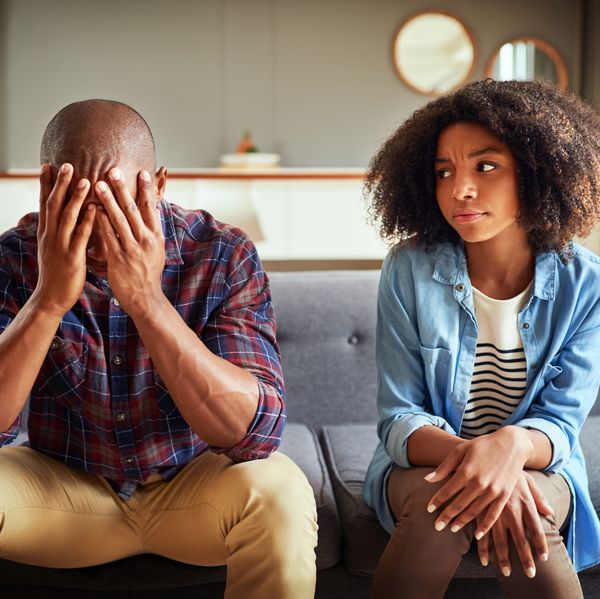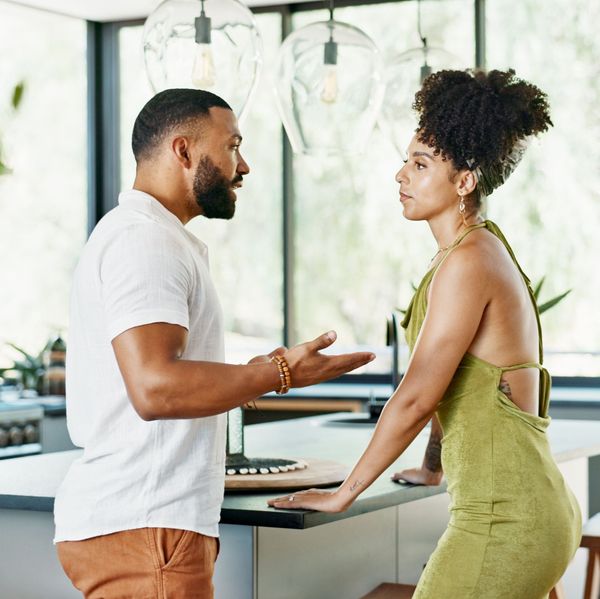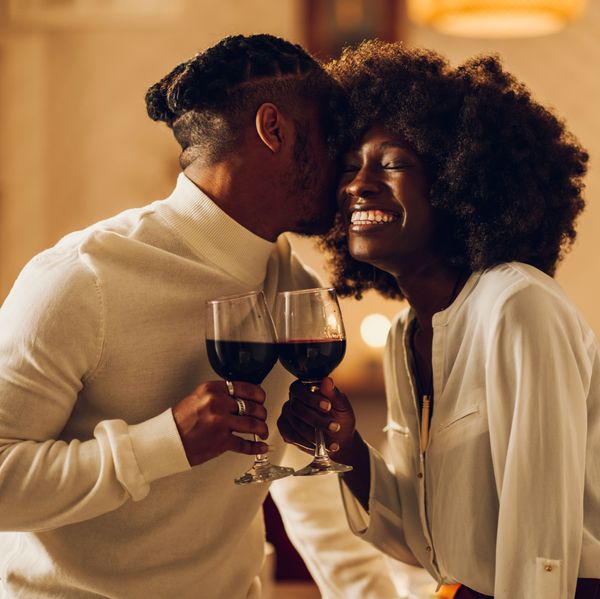
Every time someone interviews me on what I find to be essential to a relationship, the first word that I bring up isn't love, respect or reciprocity. Through personal experience, observation of friends and couples I've worked with, and just life in general, I think what is most important is safety. It's essential that all of us make sure that we are with someone who is safe and that we are someone who another could consider safe to be with.
I'm telling you, "safe" is the kind of word that is totally underrated. I think a part of it is because, whenever it comes up, physical safety is what tends to come to mind. And so, to hear me say that you should look for someone who doesn't put your physical safety in jeopardy, an immediate "duh" is the response (or, at least I hope that it is). But hear me when I say this—I have never had a man even raise his hand to me; that doesn't mean that I haven't been with someone who isn't unsafe before. Know what else? I've never raised my hand to a man either. I can still admit that I've been an unsafe woman, though—just in a different kind of way.
To be safe is to be "secure from liability to harm, injury, danger, or risk". To be safe is about "involving little or no risk of mishap, error, etc." too. And while no one is perfect—not by a long shot—we all should strive to be the kind of individuals who aren't out here hurting someone or constantly causing errors that end up putting others in harm's way.
That's why I think it's imperative that, when it comes to discussing what it means to be and feel safe in a relationship, the definitions need to go way beyond the physical. Today, I'm tackling the importance of emotional safety. If you're curious about what an emotionally safe relationship should look like, here is a pretty good place to start.
You Listen to Each Other
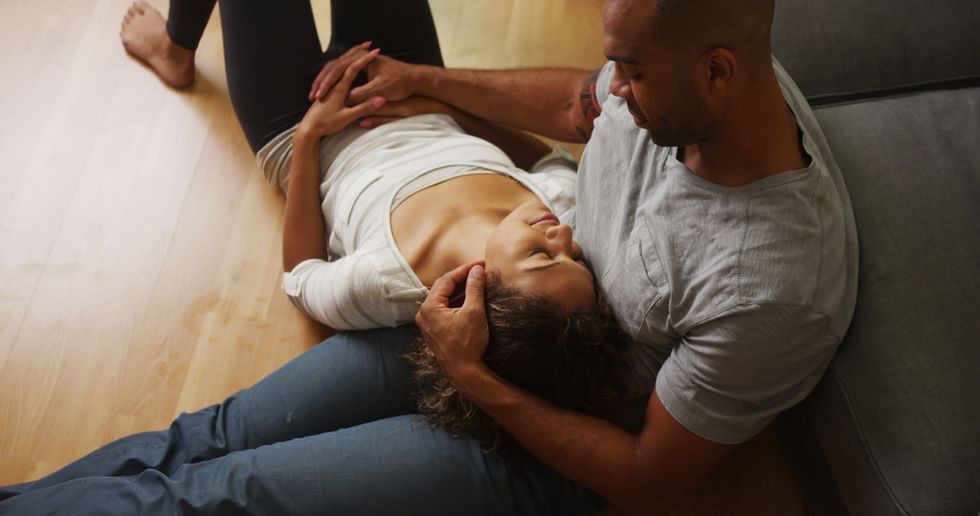
I promise you, the older (and hopefully wiser) that I get, the more a quote by a theologian named Paul Tillich resonates—"The first duty of love is to listen." I think it means a lot to me because listening isn't just hearing what someone is saying. A good listener listens without giving into distractions. A good listener doesn't interrupt while you're talking. A good listener asks questions for the sake of getting clarity. A good listener retains what is said. A good listener doesn't derail or deflect. A good listener stays on topic until the matter is resolved. A good listener will strive to sympathize and, when necessary, empathize with where you are coming from. A good listener pays close attention and is extremely attentive.
The reason why, above all else, I choose to share that listening is a sign of being emotionally safe is because, when two people make a point to fully engage one another by listening, they show that they deeply care about each other's thoughts, needs and emotions. Personally, I'm not sure if it gets any safer than that.
What You Both Share Remains Between the Two of You
Proverbs 17:9 (NKJV) says "He who covers a transgression seeks love, but he who repeats a matter separates friends." What's dope about this particular Scripture is it doesn't say that keeping stuff to one's self keeps the drama down (although it does). No, it states that when you're not out here putting things on blast, the motive is really about love. I totally agree because something I have learned to give more and expect more is confidentiality. My relationships are safer, both ways, because of it.
When you are in a relationship with someone (especially if it's serious), they should be able to feel like they can come to you with all of who they are. They should also believe that they can come to you with just about anything without having to worry about your friends knowing, your mama (or their mama) finding out or that some slick version of what was shared will show up in a Facebook group or sub-tweeted on Twitter. Also, if two people are really respectful of one another, this will remain the case, even if they should happen to part ways at some point.
To be accepted is beautiful. To know that you've got a safe place to share all of who you are is rare, sacred and something to profoundly cherish. It's one of the best types of safeness. It really and truly is.
Dependence Trumps Vulnerability
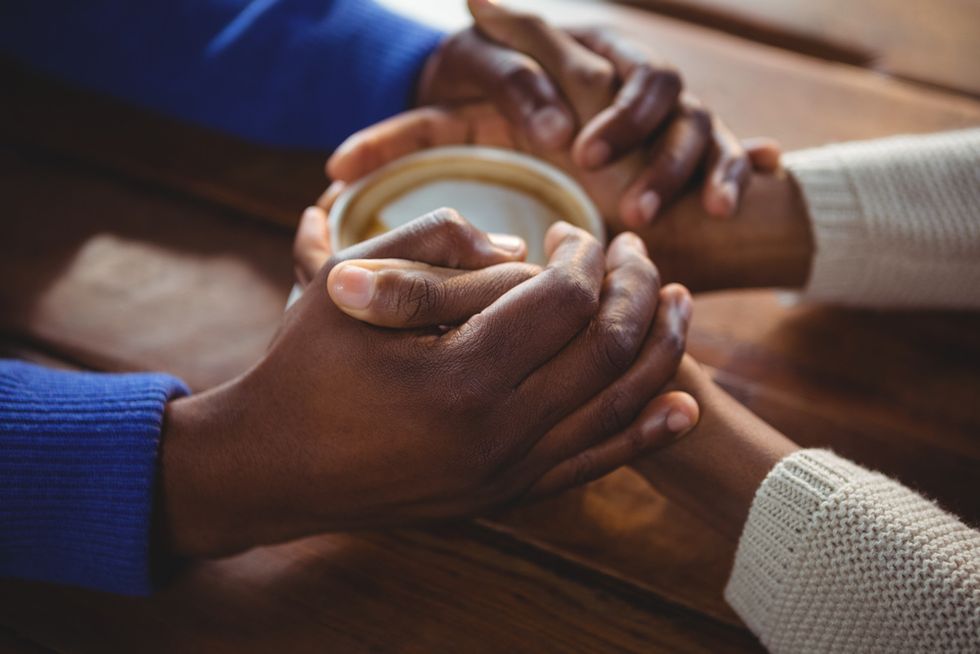
Whenever I'm in a session with a couple, something that I share with them is I'm actually not a huge fan of the word "vulnerable". Meaning, I don't think it's something that should apply to two people who have been in a platonic or romantic situation for a while; I think it's more appropriate for new situations and circumstances. The reason why I say that is because vulnerable means "capable of or susceptible to being wounded or hurt, as by a weapon" and "open to moral attack, criticism, temptation, etc." Although none of us are perfect and we do run the risk of these things happening with just about anyone, who wants to be in a long-term relationship when you're worried that you'll be wounded or hurt or attacked and criticized all of the time?
That's why I encourage couples to go with the word "dependent" more often. To be dependent is to "rely on someone or something else for aid, support, etc." Hey, if you've got a problem relying on your partner to have your back, I've gotta wonder why you're in the relationship in the first place.
You Each Take Ownership for Your Own Actions
Here is one of the most underrated indications of being in an emotionally safe relationship. If you are someone (or you're with someone) who can always point out others' issues, faults and areas of weakness but somehow, you are never able to see your own, you are an unsafe individual. Why do I say that? Because someone who is self-aware enough to take responsibility for their downfalls or offenses, is personally accountable enough to acknowledge how they can better themselves and grow, and is willing to hear you out when you bring certain issues to their attention—they are someone who is constantly on the path of personal growth and evolution.
Meanwhile, someone who is always defensive, finds a way to play the victim and/or somehow turns everything that they do wrong into being everyone else's fault (including yours)—they are emotionally immature, highly-manipulative and, quite frankly, not even close to being ready for a grown-folks type of relationship. And a healthy adult who is trying to make it work with an immature, insecure and potentially toxic one? C'mon now. Y'all already know that's the perfect recipe for an unsafe situation.
Love Languages Are Spoken Fluently
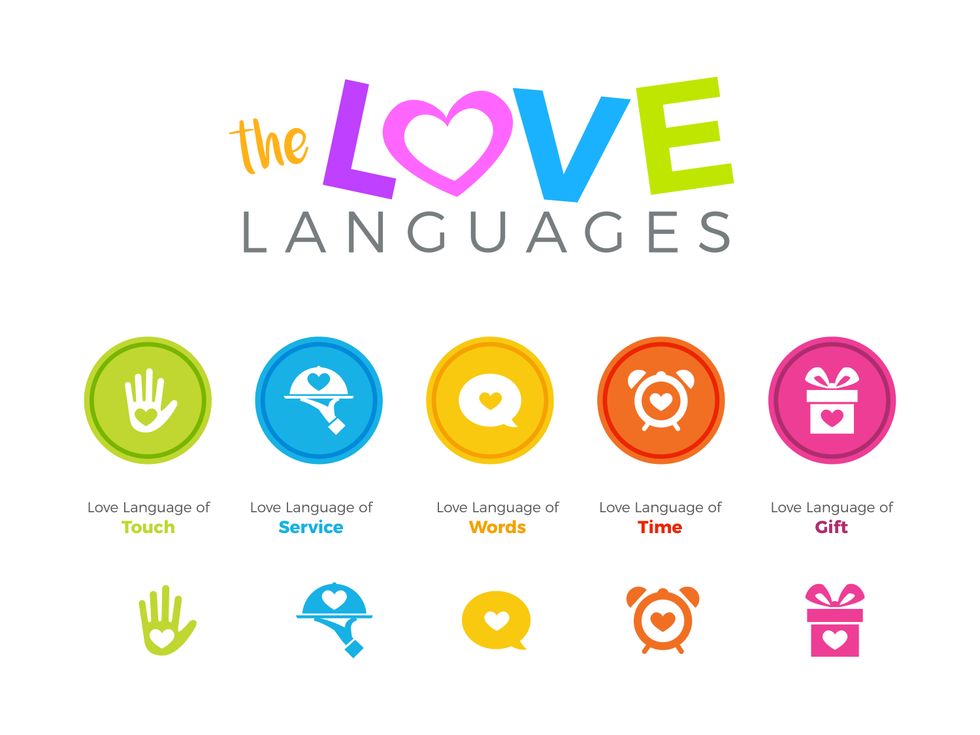
The picture right above this point breaks down what the five love languages are. The reason why they make the list is because anyone who knows their partner's primary love language, they are someone who really wants their partner to feel loved by them in the most impactful way possible. That kind of laser focus should get major props from us all.
Along these lines, two synonyms for the word "safe" are "preserved" and "maintained". I know quite a few people who claim to love one another. Still, they're constantly complaining about their needs not being met. When your partner knows how to make you feel loved and then they actually put that knowledge into action, they are basically saying "I love you so much that I want to do all that I can to preserve and maintain our relationship." Someone who loves like this is someone you can feel truly safe with, don't you think?
Apologies Aren't a Problem
I'm just gonna shoot this one straight.
Someone who refuses to apologize for what they've done wrong is someone who is mad prideful. How can you truly feel safe with an individual who isn't the opposite of prideful which is humble?
Because just think about it, it really does take some heartfelt humility to admit when you've messed up and then to apologize for it. Actually, not just apologize, but to then put forth some real effort to not do what you needed to apologize for again in the future.
While we're on the topic of pride, prideful people aren't emotionally safe individuals across the board because that trait tends to spill over into other areas and situations. A prideful person thinks they are always right. A prideful person isn't good at taking advice or asking for help. A prideful person tends to be quite critical while, at the same time, abhors constructive criticism. A prideful person has authority issues. A prideful person justifies everything they do—even when it is dead wrong. A prideful person wants fans more than true friends. Please tell me how in the world you can feel emotionally safe with someone like this?
Positive Energy Is Consistent
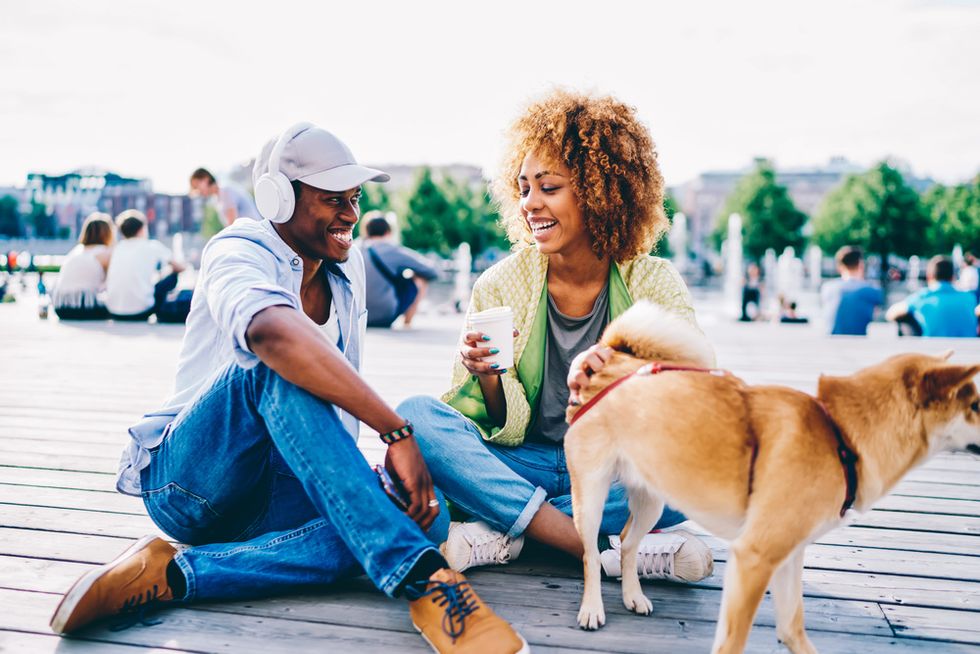
I remember watching a throwback episode of Beverly Hills, 90210 and one of the characters saying, "My mom always said that if you're always up, you must be on something." To a large extent, I agree. It's important to say that out the gate because it's darn near impossible to have positive energy all of the time. But what you can do is not be on an emotional roller coaster of pessimism and doom—or allow someone else to put you on one. You can choose to be the kind of person who is more optimistic than not, who is more solutions-oriented than problems-driven, and who tries to bring more joy and peace into your relationship than sadness and stress.
In the article "11 Ways To Bring Positive Energy Into Your Life", the author talks about the fact that positive energy has a direct impact on our health, the quality of our relationships and our ability to reach our personal goals. They also shared that some of the ways to go about harnessing positive energy is to let go of the past, to live in a spirit of gratitude, to love and accept yourself, to not dwell on negative stuff (something that I'll add here is also not to dwell on stuff that you can't change as well) and to laugh as often as possible.
Two people who are intentional about living their life this way? Not only are they an emotionally safe haven for one another, they are pretty close to being an unstoppable pair too.
Love and Respect Go Hand in Hand
If you are currently engaged, a book that I recommend adding to your couple's collection is Love & Respect: The Love She Most Desires; The Respect He Desperately Needs. There's a Scripture in the Bible that says, "Nevertheless let each one of you in particular so love his own wife as himself, and let the wife see that she respects her husband." (Ephesians 5:33—NKJV) How this all breaks down is pretty much an article on its own.
For now, I'll say that it's a reminder that women are more "wired" to feel loved; men are more "wired" to feel respected. This and love languages have something in common. When it comes to both, where a lot of us mess up is we give more of what we want than what our partner actually needs.
As far as respecting men goes, respect is about esteem. When I think about what our Black men go through on a daily basis, simply because of the color of their skin, that is enough to motivate me to esteem and affirm them any and every chance that I get. Because if there is any place where they should feel safe, seen and acknowledged (in public and in private), it's from a sistah. Black men feel our love by how we respect (esteem) them.
And fellas, if you're looking in on this, if you're a Black man—your mama's a Black woman. That should be enough of a reason to treat Black women, especially the one you are seeing, like she is to be honored, cherished and adored. We as Black women feel respected by how well we are loved.
Two people who have love and respect constantly present in the life that they share with one another—they are the poster children for what it means to be in a truly emotionally safe relationship. If that is you, congrats. Please hold on to what you've got. It's super special. Safe relationships always are. If that's not you, well, you've got some serious stuff to think about, don't you? You are far too precious to not be in a safe relationship; emotionally safe included.
Want more stories like this? Sign up for our newsletter here and check out the related reads below:
The Signs Of A Truly Intimate Relationship
8 Things You Should Do Daily To Keep Your Relationship Strong
This Will Get You Through The "Ho-Hum Seasons" In Your Relationship
Feature image by Shutterstock
- Should Someone Have To MAKE You Feel Loved? - xoNecole: Women's Interest, Love, Wellness, Beauty ›
- 8 Different Types Of Relationships - xoNecole: Women's Interest, Love, Wellness, Beauty ›
- Needs Not Being Met In The Relationship What To Do - xoNecole ›
- The Feeling of Emotional Safety | Psychology Today ›
- 8 Signs you Don't Feel Emotionally Safe in your Relationship | NLP ... ›
- Do This to Feel Emotionally Safer in Your Relationship | Psychology ... ›
- Keeping a Relationship Emotionally Safe | University of Chicago - SSA ›
- Emotional security and safety in relationships ›
- 4 Red Flags You Don't Feel Emotionally Safe With Your Partner ›
- Emotional Safety is Necessary for Emotional Connection ›
- How Do You Create Emotional Safety in Your Relationships? ›
- What It Means to Be Emotionally Safe in a Relationship ›
This Is How To Keep 'Holiday Season Stress' From Infecting Your Relationship
Hmph. Maybe it’s just me, but it seems like there is something really weird happening in the fall season air (because winter doesn’t officially begin until December 21) that cuddle season is in full swing while break-up season is as well. In fact, did you know that break-ups are so popular during the holiday season that December 11 is deemed Break-Up Day?
The reasons why relationships shift around this time vary; however, I did both roll my eyes and chuckle when I read that a very popular one is because it’s an easy way to get out of getting one’s significant other a Christmas present. SMDH.
Anyway, I personally think that the less shallow folks out here may contemplate calling things “quits” or they at least distance themselves a bit from their partner (and what I’m referring to is serious relationships) due to all of the stress and strain that oftentimes comes with the holidays whether it be financial, familial, due to their tight schedules or something else.
Listen, I would hate for you and your man to miss the fun and happiness of experiencing this time of year, all because you are so overwhelmed or irritated that you can’t really enjoy it. That’s why I have a few practical tips for how to avoid allowing the typical holiday season stress from INFECTING your relationship.
Manage Your Expectations
 Giphy
GiphyUnmanaged expectations. If there is a main reason why the holiday season tends to be so stress-filled for so many people, I’d bet good money that this is the cause. And when you’re in a long-term relationship, expectations can manifest themselves in all sorts of cryptic and/or unexpected ways. You might have relatives who assume that you are going to be with them for Thanksgiving or Christmas when you have other plans in mind. You might be thinking that you are going to spend one amount for presents while your man is thinking something totally different. When it comes to scheduling, your signals may be crossed.
And you know what? To all of these scenarios, this is where clear and consistent communication come in. Don’t assume anything. Don’t dictate anything either. From now until New Year’s, mutually decide to check in once a week, just to make sure that you are both on the same page as it relates to the holidays and what you both are thinking will come along with it. The less blindsided you both feel, the less stressed out you will be. Trust me on this.
Set (and Keep) a Budget
 Giphy
GiphyOkay, so I read that last year, 36 percent of Americans incurred some type of holiday-related debt. Hmph. Last year, there was still some sense of normalcy in this country, chile, so I can only imagine what finances are gonna look like over the next several weeks. That said, since I don’t know a lot of people who don’t find being broke stressful, make sure that you and your bae set a budget and then stick to it this year — no ifs, ands or buts.
Because really, y’all — it doesn’t make sense to deplete savings and/or max out credit cards for a few days of giggles only to be damn near losing your mind because you don’t know how to make ends meet come Dr. Martin Luther King, Jr. Day.
And by the way, this tip doesn’t just speak to things like food and gifts; I also mean travel. If it doesn’t make a ton of sense (or cents) to be all over the place this year — DON’T BE.
Keep Matthew 5:37 at the Forefront
 Giphy
GiphyIf off the top of your head, you don’t know what Matthew 5:37 says, no worries, here ya go: “But let your ‘Yes’ be ‘Yes,’ and your ‘No,’ ‘No.’ For whatever is more than these is from the evil one.” That verse right there? Oh, it’s a boundaries lifesaver! I say that because do you see “maybe” or “I’ll think about it” in there? Nope. LOL. It says that you should tell people “yes” or “no” and leave it at that — and that complements Anne Lamott’s quote, “’No’ is a complete sentence” impeccably well. Yeah, you’ve got to remember that anything beyond a yes or no to a request is privileged information; you don’t owe anyone details or an explanation.
Besides, if you are really honest with yourself, when someone asks you something and you give a “Umm, let me think about it” kind of reply, more times than not, you already know what your answer is going to be — so why not let you both off of the hook? Give your response. Commit to that. And let everyone (including yourself) get on with their lives and schedules.
I promise you that when it comes to those holiday parties, you are pissing more folks off by not RSVP’ing or doing so and not showing up than just saying, “Thank you but not this year” off the rip.
Remember That Your Personal Space Is Privilege Not a Right
 Giphy
GiphyA friend of mine recently bought a new house and invited me over to come see it. He’s a single man with no children, so as I was taking in all of the space that he had, especially as I walked through his finished basement, I joked about relatives coming to live with him. “Hell no” and “absolutely not” were pretty much his immediate responses as he went on to say that some folks even had the nerve to be offended when he told them that he had no intentions on taking DNA in.
Ain’t it wild how people think that your stuff is their right? And yes, that brings me to my next point. Your home is your sanctuary space. If you want to host folks this year — cool. If not, ALSO COOL. Please don’t let folks (family included) guilt you into how they want you to act or even into what they would do if the shoe was on the other foot. You are not them — and as one of my favorite quotes states, “If two people were exactly alike, one of them would be unnecessary.” (A man by the name Larry Dixon said that.)
Hell, my friends? They know that I am good for sending them random things that they need or even want all throughout the year. Coming over to hang out at my pace, though. Uh-uh. Chalk it up to being a card-carrying member of the ambivert club yet I like keeping my living space personal — and I sleep like a baby, each and every night, for feeling that way.
Always remember that your space, your time, your resources, your energy and shoot, yourself period (including your relationship), are all things that are your own. You get to choose how, when and why you want to share them. The holiday season is certainly no exception.
Cultivate Some “You Two Only” Traditions
 Giphy
GiphyIt’s not uncommon for some couples to hit me up after the holiday season to “detox.” Sometimes it’s due to the financial drama (and sometimes trauma) that they experienced. Sometimes it’s because they allowed their relatives (especially in-laws) to get more into their personal business than they should’ve. More than anything, though, it tends to be because they didn’t get enough quality time together and so ended up feeling “disconnected.”
Please don’t let that happen. Listen, I’m not even a holidays kind of woman and yet, I will absolutely sit myself down with some hot chocolate and chocolate chip cookies to enjoy a Hallmark holiday film or two. Aside from the fact that most of them are lighthearted and sweet, I also like that they usually focus on couples loving on each other amidst all of the holiday beauty and ambiance — which is something that all couples should set aside some time to do.
Maybe it’s a vacation. Maybe it’s a staycation. Or maybe it’s my personal favorite, A SEXCATION. Whether it’s for a few days, the weekend or even overnight — don’t you let the holidays go by without setting aside time for you and your man to celebrate one another. Don’t you dare (check out “Are You Ready To Have Some Very Merry 'Christmas Sex'?”).
GET. SOME. REST.
 Giphy
GiphyI once read that 8 out of 10 people get stressed out over the holidays and 3 out of 10 lose sleep during to it — and when you’re stress-filled and sleep-deprived, that can absolutely lead to hypersensitivity, making mountains out of molehills and even not being in the mood for sex.
Your relationship can’t afford to go through any of this, so definitely make sure to prioritize rest. I don’t care how unrealistic it might seem during this time, sleep should never be seen as a luxury; it will always and forever be a great necessity.
That said, try to get no less than six hours of shut-eye in (check out “6 Fascinating Ways Sex And Sleep Definitely Go Hand In Hand”) and even ask your bae to take a nap with you sometimes (check out “Wanna Have Some Next-Level Sex? Take A Nap, Sis.”). Not only will sleep help to restore your mind, body and spirit but, when it’s with your partner, it’s an act of intimacy that can make you both feel super connected, even in the midst of what might feel like chaos.
___
Holiday season stress is real. Still, never give it the permission or power to throw your relationship off. Put you and your man first and let the holidays be what they are gonna be, chile.
Let’s make things inbox official! Sign up for the xoNecole newsletter for love, wellness, career, and exclusive content delivered straight to your inbox.
Featured image by Shutterstock
How To Avoid Being An Emotionally Impulsive Spender This Holiday Season
Geeze. Can you believe that we are just a few days out from another Christmas? Yeah, me neither. In fact, because I’m not a holidays person myself (check out “So, What If You Don't Observe Holidays?”), it wasn’t until one of my clients was venting about how stressed out she was due to all of the holiday season procrastinating that she had been doing that I realized just how fast December is actually flying by.
If, like her, you’re feeling frazzled because, although you told yourself last year that you weren’t going to wait until the last minute to “handle your business,” you ended up doing exactly that, fret not. I’ve got 10 tips that can keep you from making emotionally-triggered decisions as far as your financial expenses are concerned. Merry Christmas. #wink
1. Create a Budget. Stick to It.
 Giphy
GiphyBudgets, boy. I recently read that one of the reasons why they don’t work for a lot of people is because many folks don’t have a clue about how much money they spend on a monthly basis to begin with. SMDH. That said, at the end of the day, it’s important to remember that a budget is simply setting boundaries/limits on your spending — and being intentional about moving in this fashion is always a wise move; especially when it comes to this time of the year…especially being that it’s typical for half of all Americans to take on some type of holiday season debt with 17 percent needing six (or more) months to pay it off.
Know what can prevent this kind of financial chaos? A SPENDING BUDGET. Tips for how to create one of your own this year can be found here.
2. Never Shop When You’re Stressed or Pressed
 Giphy
GiphyYou know how they say that it’s not a good idea to go grocery shopping when you’re hungry? Although the holiday season can be a stressful time, avoid shopping for gifts (or décor or food for recipes) when you are feeling stressed out or pressed for time. More times than not, that cultivates anxiety which could cause you to either purchase things that you don’t really want or to spend money that you don’t really have (P.S. If you’re relying on credit cards, that qualifies as money that you don’t really have. Just sayin’).
3. Don’t Keep Up with the Joneses
 Giphy
GiphyKnow something else that can stress you out: trying to keep up with the Joneses. And y’all, now that we have social media, the reality is that envy is at an all-time high. That’s because it can be really easy to watch holiday engagements, holiday trips and folks bragging about the things that they’ve received in times past, only for you to find yourself wishing that you were them — or putting pressure on yourself and those in your world to keep up.
Listen, it is King Solomon who once said, “So are the ways of everyone who is greedy for gain; It takes away the life of its owners” (Proverbs 1:19 — NKJV) and “A sound heart is life to the body, but envy is rottenness to the bones” (Proverbs 14:30 — NKJV) and he’s considered to be the wisest man who ever lived (during his time — I Kings 4:30). Yeah, both of these verses are a spiritual reminder that whatever you are planning to do or give, do it out of the goodness of your heart — not so that you can low-key “outdo” the next guy.
4. No Need to “Tit-for-Tat”
 Giphy
GiphyThis one might be a bit controversial yet I’m totally okay with that. I don’t care what the occasion is, no one is OWED a present. A gift is a voluntary token of one’s appreciation or affection. That said, if you decide to give someone a present this year, don’t automatically expect something in return. If you get something, cool. If not, if you were giving for the right reasons, it really shouldn’t matter (RIGHT?). On the flip side, if someone decides to get you something and you don’t have something to offer in return, also cool.
Other than going to someone’s home for a holiday dinner or party, for anyone to feel like they should have something in hand because someone else does…that’s not giving, that’s competing — and that absolutely should not be the spirit that you are in (or around) during this time of year.
Again, a gift is not an obligatory thing. If you’ve always thought otherwise, it’s time to do some serious reprogramming.
5. Avoid the Pressure to Buy for Lots of Adults
 Giphy
GiphyLast month, Newsweek published an article that said it’s wise to not spend a ton of money purchasing gifts for adults. A financial expert in the piece said that it’s best to buy for kids because, more times than not, you’re going to get adults something that they already have a lot of, they don’t really need or they’re not going to use (beyond maybe regifting) anyway.
If you’re not feeling that insight, my take would be to exchange names and set a price cap for the grown folks. I say that because, I don’t think that people ever outgrow wanting something over Christmas. It’s just that the over-the-top energy should be reserved for the kiddies — and even then, the “4-gift rule” (want, need, read, experience) is probably your best bet for them…financially and otherwise.
6. Go for Thoughtful over Expensive
 Giphy
GiphyIt’s kind of wild how much close-to-torture folks send themselves through to purchase gifts that, a good 6-8 months now, most folks aren’t even going to remember. That’s why it’s also a good idea to purpose in your mind to get something thoughtful over expensive.
Honestly, that’s a big part of the reason why Etsy continues to be a go-to for gifts (for every occasion) for me. It’s because you can oftentimes get things customized/personalized which ends up meaning so much more to people than something that you bought at a generic department store that might have a high price tag yet still lacks in sentimentality and deep meaning.
7. Use Coupons and Promo Codes
 Giphy
GiphyCoupons (and promo codes) are a slippery slope in the sense that…they remind me of when I used to go overboard while thrift store shopping. I say that because, just because I might find several bomb dresses for under $20, what am I going to do with 50 of ‘em (over time)? It’s just as much of a waste of money as buying couture if neither option gets much use.
And that’s kind of the thing about coupons and promo codes. Some people end up overspending because they rationalize that so long as there are discounts attached, it’s all good. At the same time, this doesn’t mean that you should forego coupons and promo codes altogether. The key is to put together your shopping list (and budget) and then use discounts specifically for those items. If you do this, you could save well over $1,000 annually (at least, depending on what you decide to buy).
8. Avoid Add-Ons
 Giphy
GiphyYeah. Dodge add-on expenses. Add-ons like what? The first thing that comes to my mind is a warranty. What’s the chance that someone is actually going to need that? Another example is paying for things to be “professionally” gift wrapped. Chile, throw that stuff in a gift bag with some tissue paper and go on about your day. All good.
9. Rethink Gift Cards
 Giphy
GiphyIf there is any time of the year when there is a noticeable hike in gift card purchases, now would be it. And although they are a convenient approach to gift giving, at the same time, many come with hidden fees, the full amount oftentimes goes unused (which ends up being a waste of money) and they do come with expiration dates that are oftentimes forgotten.
So, if you’re someone who likes to wait until the last minute to do your holiday shopping, resist the urge to impulsively pick up a handful of gift cards. Unless it’s to a place that you know someone is going to use within the next few months, they could end up in somebody’s kitchen drawer for the next couple of years. And what a waste that would be.
10. They’ll Get It When They Do. And That’s Okay.

=
GiphyOne more. Although it is super thoughtful and proactive to get people their gifts in time for whatever occasion you purchased them for, if trying to reach that goal is going to require paying for rush shipping that is damn near as high as the price of gift or spending a lot of gas money that you don’t have at the moment to drive miles and miles away — take the pressure off to spend a ton of cash just to make sure that something arrives at December 25. Listen, through doing business with Etsy, I have learned that through this administration, there are all sorts of tariff issues going on and the USPS is slower than ever too, so paying more may not guarantee much.
The hack? Send a message that something special is coming…soon enough. The thought really is what counts (more times than not); plus, it builds anticipation of something good coming, even if it’s after all of the Christmas Day hoopla. And no one (with sense) is going to have a problem with that.
Now don’t you feel better? Happy Holiday Shopping, sis.
Let’s make things inbox official! Sign up for the xoNecole newsletter for love, wellness, career, and exclusive content delivered straight to your inbox.
Featured image by Shutterstock



